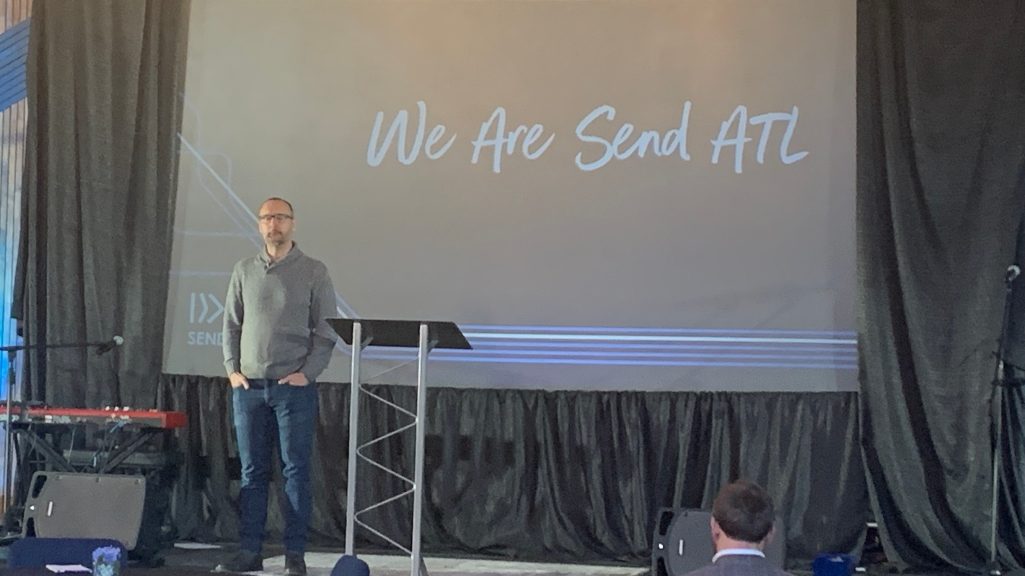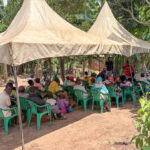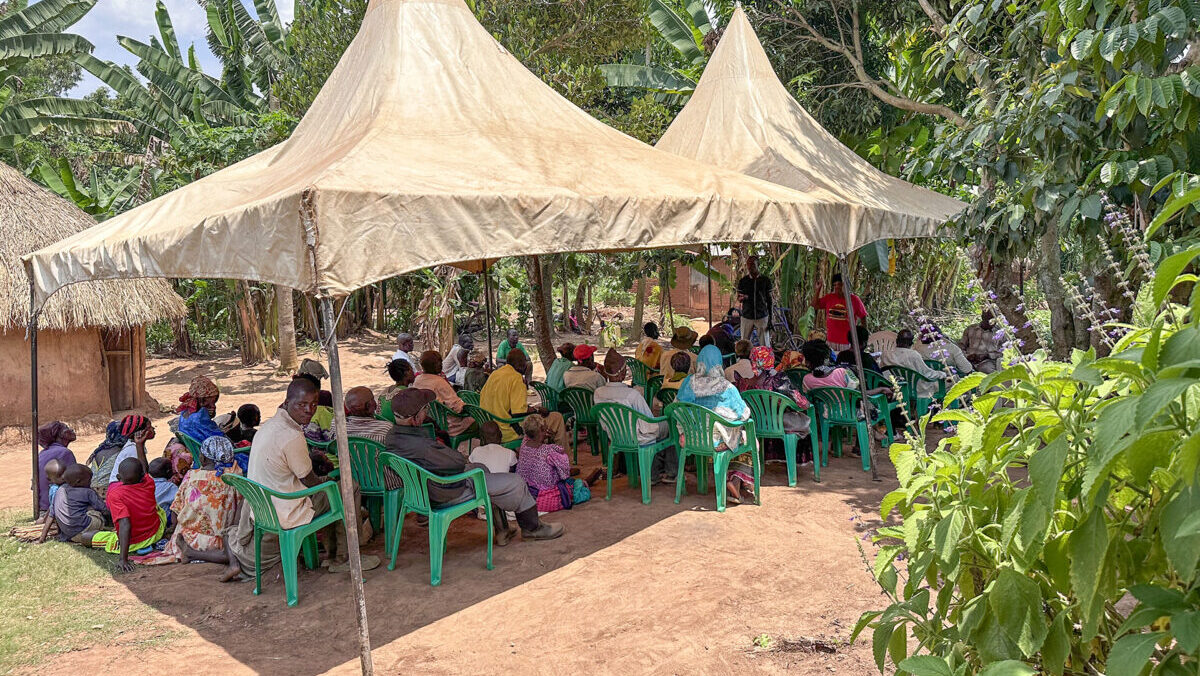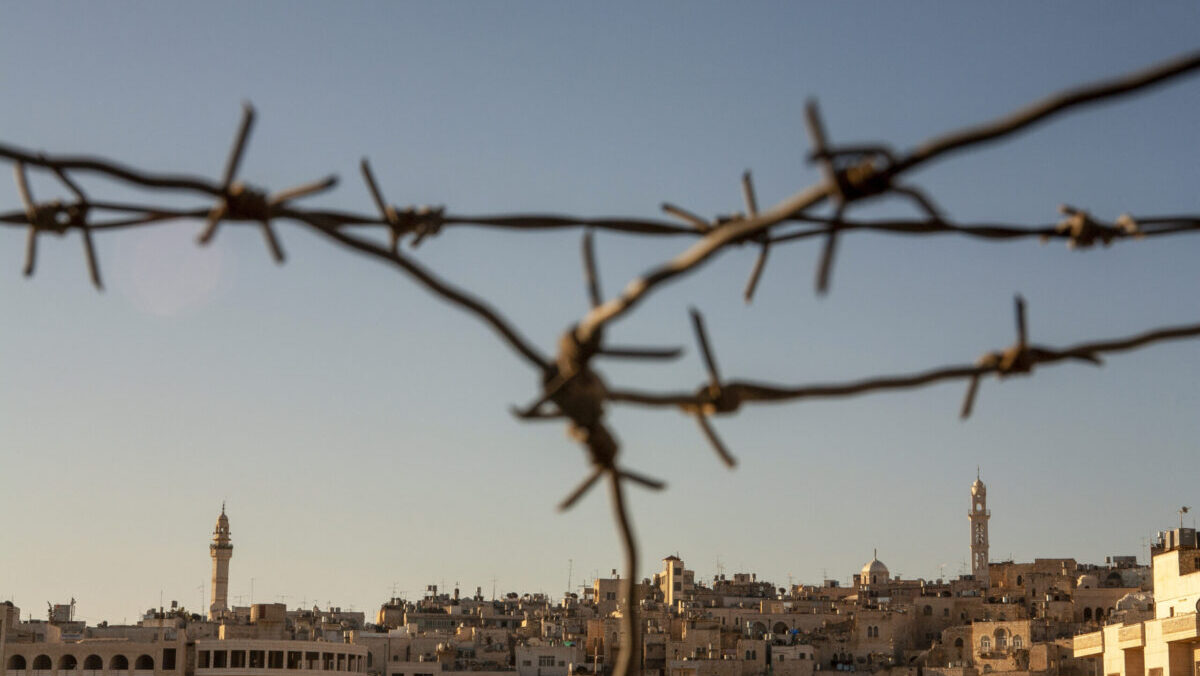Ryan McCammack’s story isn’t typical for Southern Baptist Convention church planters. The story of SBC North American missions over the past decade has been a regular call for church planters from the Southeast to start churches in the underserved regions of North America.
But that’s not McCammack’s story. In 2017, God called McCammack from Chicago to the buckle of the Bible Belt: Atlanta. And North Carolina Baptists played a big part in that journey.
McCammack learned about Atlanta’s gospel need at a Tennessee camp where many of the participating churches were from the inner-city of Atlanta. Several of the participating pastors asked him if he would consider church planting in Atlanta. At first, McCammack simply said no. His impression was that Atlanta had enough churches. In addition, he didn’t expect to ever leave the church he pastored in Chicago.
“But the Lord kept it on my heart,” McCammack said. “Finally, my wife and I agreed to pray about it. As we really began to investigate, we learned that there are some great churches in Atlanta, but particularly in the more urban areas of Atlanta, there are a lot of gospel needs.”
Good timing
As McCammack was exploring the possibility of church planting in Atlanta,The Summit Church in Raleigh, North Carolina was looking to plant a church in the city.
“I didn’t grow up Southern Baptist,” McCammack said. “Growing up in the north, Southern Baptists weren’t on my radar. I remember distinctly starting to feel this burden about planting. My wife and I were just convinced we didn’t want to do this alone. I have a lot of theological education, but I had never planted a church before. So I began to pray, ‘Lord, if you’re guiding us in this way, please bring some folks along that we can learn from.’”
At about that time, McCammack googled “church planting in Atlanta.” Summit’s page describing their desire to start a church in Atlanta showed up. In time, he joined Summit’s residency program.
“Up until that time, all the Summit guys had been internal people from the church,” McCammack said. “I was the first guy who had been a cold call. They interviewed me up and down, left and right, to make sure I was real. I’m so grateful that they welcomed me into the family. It was such a life-changing experience to be welcomed into that family going through the residency at Summit. We were cared for, shaped and invested in. The doors were flung wide open for us.”
Most importantly, over the couple’s time at Summit, the McCammacks learned that Summit “had their backs” as they prepared to plant in Atlanta. So that the McCammacks could get accustomed to life in Atlanta, the Summit team recommended they move from Chicago directly to Atlanta. Then they visited Summit Church a couple of times a month.
‘Most diverse square mile in the world’
In Atlanta, McCammack got to know his Decatur community. Just northeast of Atlanta, Decatur is highly diverse, both in ethnicity and socio-economic status. Just a mile from where McCammack eventually planted Gospel Hope Church in 2017, sits Clarkston, Ga., which Time magazine has called the most diverse square mile in the world.
Gospel Hope’s vision is to display the reconciling hope of the gospel in their diverse community.
“We believe the hope of the gospel is the ability to unite people — to not just make them like family but to make them actually family,” McCammack said. “We say this all the time in our church: ‘These are not like our brothers and sisters. These are our brothers and sisters.’ And through the work of Christ, we are made one, and we’ve seen that wonderfully at Gospel Hope, where we are black and white and refugee and one in the gospel.”
In the fall, the church will plant a new church to engage Spanish-speaking residents in the community.
McCammack calls the opportunity to plant a church in this community one of the most enriching ministry experiences of his life.
“It’s just so thrilling to see what the Lord has done and how the Lord has brought people together around the world from all kinds of different backgrounds,” McCammack said. “I think it’s a powerful display of the work of Jesus.”
As an example of the church’s ministry, McCammack points to a second-generation Nigerian man whom Gospel Hope baptized. The man has served as an apprentice at the church and is now heading to seminary with plans to go into vocational ministry.
“We are trying to build a sending culture,” McCammack said. “In our short history, we’ve been able to plant two churches. We just hope that continues. We want to be continually willing to send our best and brightest so the Kingdom of Christ would triumph, not just Gospel Hope Church.”
McCammack also serves as the North American Mission Board’s city missionary for Atlanta, where he helps catalyze church planting movements in the city. He works with both churches and church plants to help them start new churches and eventually become multiplying churches.
“I’m so grateful to be on the frontlines and working with these church planters,” McCammack said. “These are great families who are willing to put it all on the table for Jesus. They are willing to risk comfort and go into a new place where there’s a lot of brokenness to see a gospel movement get started.
“I’m so grateful to be a part of a denomination that supports church planting. It’s truly the most effective strategy to reach new people, to help unchurched people get connected to the church. I’m so grateful that the [Annie Armstrong Easter Offering] helps fuel that mission.”
EDITOR’S NOTE — This story was written by Tobin Perry and was first published by the Biblical Recorder, news service of the Baptist State Convention of North Carolina.







